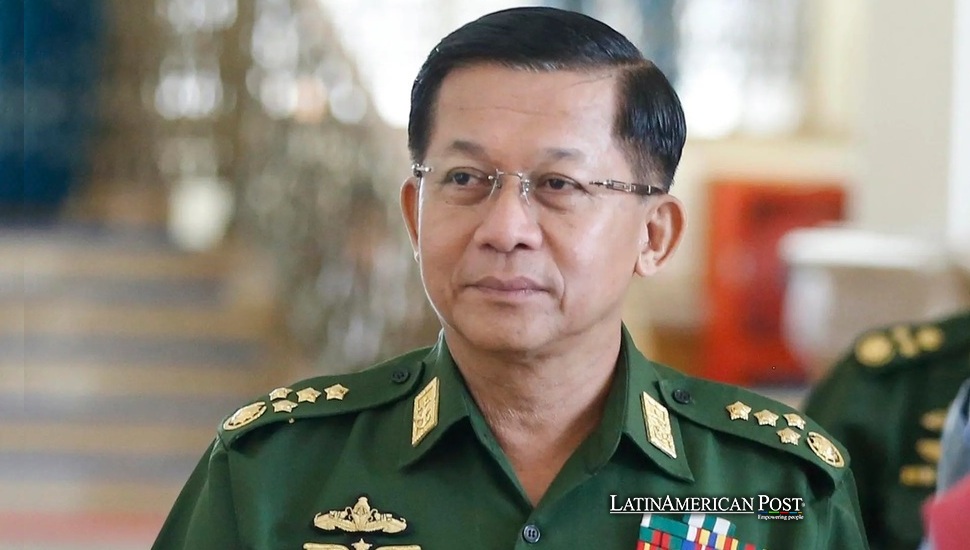Argentine Court Issues Arrest Warrant for Burmese Military Leader Over Rohingya Genocide

An Argentine tribunal has issued international arrest warrants for Burma’s top military figure and his former civilian ally, alleging their roles in genocide against the Rohingya minority. This historic legal action underscores Argentina’s use of universal jurisdiction to pursue global accountability.
A Sweeping Ruling Echoes Worldwide
In a development signaling both the strength and controversial reach of universal jurisdiction, an Argentine federal court has issued international arrest warrants for high-level figures from Burma—also known as Myanmar—accused of directing a genocidal campaign against the Rohingya minority. According to an NGO pressing the demand in court, these warrants target no less than 26 individuals, including top generals and high-profile civilian leaders.
Central to the story is Min Aung Hlaing, the head of Burma’s military junta, alongside the Nobel Peace Prize laureate Aung San Suu Kyi, who served as de facto head of the Burmese government in 2017. That year saw a brutal crackdown in the state of Rakhine, prompting some 720,000 Rohingya Muslims to flee to neighboring Bangladesh. For many, this exodus represented the culmination of years of persecution, while international observers widely labeled it ethnic cleansing—bearing hallmarks of genocide.
This announcement from Argentina came out on Wednesday. It differs from the international cases active in The Hague. The Argentine court used domestic law that lets courts judge grave crimes no matter where they happen. By availing itself of this principle, Argentine authorities underscore the belief that genocide and crimes against humanity transcend borders.
The Organization of Rohingya in the UK (BROUK), which spearheaded the case, welcomed the arrests as “a ray of hope” for a persecuted community. By day’s end, Argentinian authorities reaffirmed that they had also included top Burmese military officials, among them two civilians and former president Htin Kyaw, underscoring that leadership must answer for atrocities carried out under their command.
Invoking Universal Jurisdiction
Argentina’s Constitution and penal code include rules that let judges try crimes causing widespread harm; these crimes cover genocide, war offenses, and acts against basic human decency. Under this rule, Argentinian judges try cases outside local boundaries. Courts take cases because of a deep call to hold offenders accountable for actions that disturb society’s sense of right and wrong. While the doctrine has its critics, supporters laud it as a crucial tool in addressing impunity when global institutions or local governments fail to act.
BROUK submitted its original complaint in November 2019 at the federal courts of Buenos Aires. The crux was straightforward: Burmese armed forces systematically attacked Rohingya populations in 2017, culminating in widespread killings, forced expulsions, and large-scale destruction of entire villages. Even though Ms. Suu Kyi once symbolized democratic progress in Burma, she is alleged to have defended the military’s actions before international courts. Thus, the complaint claims that she bears indirect responsibility for enabling or legitimizing these atrocities while in power.
Following the NGO’s request in December 2023 for arrest warrants against Burmese military figures, Argentinian prosecutors expanded the net to include civilian leaders—namely Suu Kyi and the ex-president. The newly minted arrest warrants, then, implicate them in a campaign that numerous observers, including the United Nations, deem an ethnic cleansing. According to a scathing UN report, at least 10,000 people were killed in a matter of months, with entire villages set ablaze. Yet, until now, Burmese generals and politicians frequently eluded any real accountability.
Where prior investigations might have stalled, the Argentine tribunal now stands poised to re-energize efforts for justice. By acting under universal jurisdiction, the court capitalizes on a legal approach that overcame domestic Burmese immunity. For many Rohingya families scattered across refugee camps, it could be the only realistic avenue for validating their suffering on the global stage. Arrest warrants speak of firm resolve. Enforcing their calls for help from other nations, Burmese officials stick to long-held views and oppose new directions.
Echoes of a Genocide’s Sorrow
For Rohingya survivors, the memory of 2017’s horror remains fresh. The Burmese army’s operation in northern Rakhine triggered an exodus, with refugees streaming into Bangladesh. “Cleansing” entire communities, the soldiers forcibly expelled or killed countless families. International media have documented the accounts of mass violence and sexual assault, as well as systematic property destruction. In recent years, groups such as the International Criminal Court (ICC) plus the International Court of Justice (ICJ) pursued separate cases. The centers showed little headway.
At the same time, Ms. Suu Kyi, a Nobel Peace laureate once seen as a sign of popular rule, surprised many when she defended the army’s attack. At The Hague, she spoke for the Burmese government and reduced claims of planned mass murder. Critics accuse her of failing to protect one of Burma’s most vulnerable minorities. Indeed, the Argentinian arrest warrant lumps her in with other officials equally blamed for enabling or covering up atrocities.
For advocates of universal jurisdiction, these events illustrate why the principle exists: when local or even international courts fail, outside jurisdictions may fill the gap. Yet critics remain apprehensive. Some argue that while Burmese leadership committed grave misdeeds, Argentina’s courts lack direct ties to the conflict or any potential for actual enforcement. Nonetheless, for an oppressed minority facing near-total impunity, the moral victory of seeing global recognition of their plight carries weight—particularly when local Burmese institutions have displayed no inclination to deliver justice.
Challenges to Enforcement
As powerful as these arrest warrants may be, ensuring compliance remains an enormous challenge. Burmese officials continue to operate beyond the reach of Argentinian police forces. Realistically, neither Min Aung Hlaing nor Aung San Suu Kyi will likely set foot in Argentina soon, nor will the Burmese government willingly extradite them. Still, the warrants may limit international travel for these figures, turning them into fugitives whenever they leave Burmese soil.
International reactions to these developments also matter. The ICC is currently weighing whether to issue its arrest warrant for Min Aung Hlaing, following a request made by the prosecutor last November. Should the ICC judges side with the prosecutor, it could amplify the pressure on Burmese leaders. In that scenario, a confluence of actions from The Hague and Buenos Aires would substantially increase global condemnation. Nonetheless, significant powers might remain reluctant to intervene directly.
Domestically, the Burmese military regime has also accelerated repression since the February 2021 coup. Min Aung Hlaing’s forces fight battles in many regions of the country. The civil strife, lasting many years, grows worse. Human rights groups report that thousands of armed rebels are rising. That report shows the conflict spreading. Courts in Argentina face a challenge: Does a court order from afar change the course of a remote battle?
For those who favor universal jurisdiction, the answer remains a firm yes. Supporters claim that moral judgment paired with pressure from other lands cuts off war criminals, stops their travel, and weakens their shield against punishment. Even if those indicted remain physically out of reach, the constant threat of arrest—coupled with the censure of significant segments of the international community—might be the best recourse for accountability.
In truth, the Argentine move signals broader significance. No one expects that single step to dethrone the Burmese generals. But by placing moral responsibility on Suu Kyi and her allies, it underscores that leaders cannot hide behind political excuses to justify mass persecution.
Through an arrest warrant based on universal jurisdiction, an Argentinian tribunal has triggered fresh momentum in the global quest to hold Burmese leaders to account for what the UN has termed ethnic cleansing with hallmarks of genocide. For the Rohingya minority, these developments serve as a reminder that, even when overshadowed by the complexities of geopolitics, justice remains plausible—albeit slow-moving and challenging to enforce.
The measure stands apart from ongoing proceedings at The Hague, but the synergy could be formidable if the ICC issues similar indictments. Enforcement stays uncertain. The sign of these warrants reaches farther than words of criticism; it tells despotic governments and state workers that awful crimes do not vanish in a time marked by watchful people.
Also Read: Latin America Remains Perilous Battleground For Environmental Activists
Violence persists in Burma. Some dismiss the Argentinian court’s act as mere display. Such acts build community understanding, stir hope among those who suffer, and restore shared moral standards that hold mass cruelty and harm against people to punishment. The new warrants show a profound promise to bring justice to those left behind by oppression. And for the battered Rohingya community, that may be the most potent message of solidarity they have witnessed in a long time.





